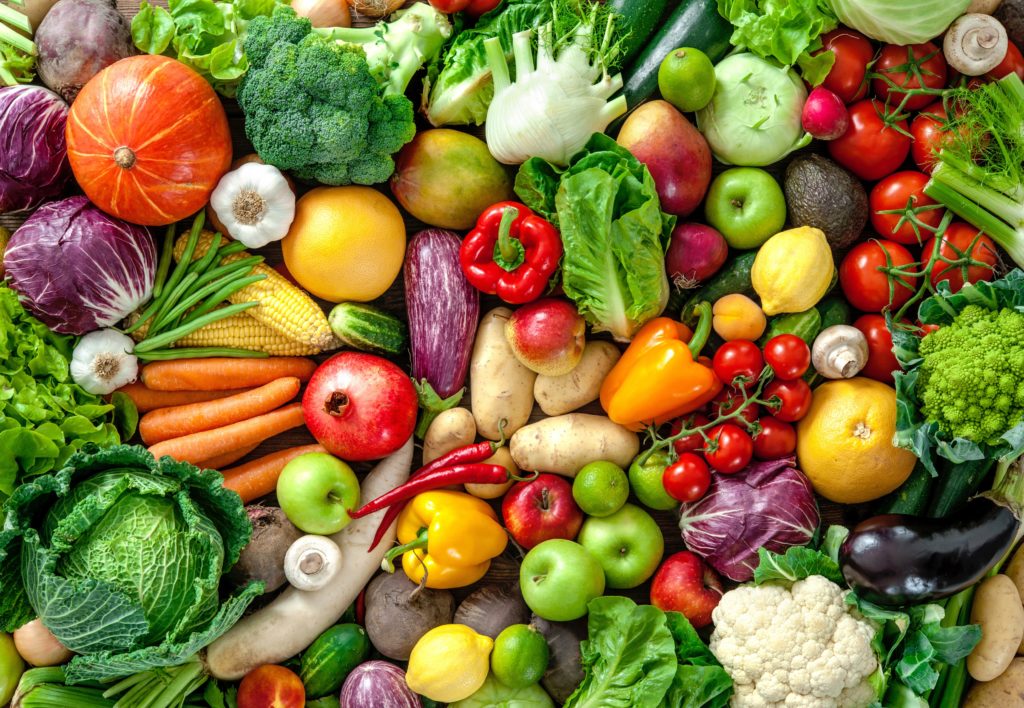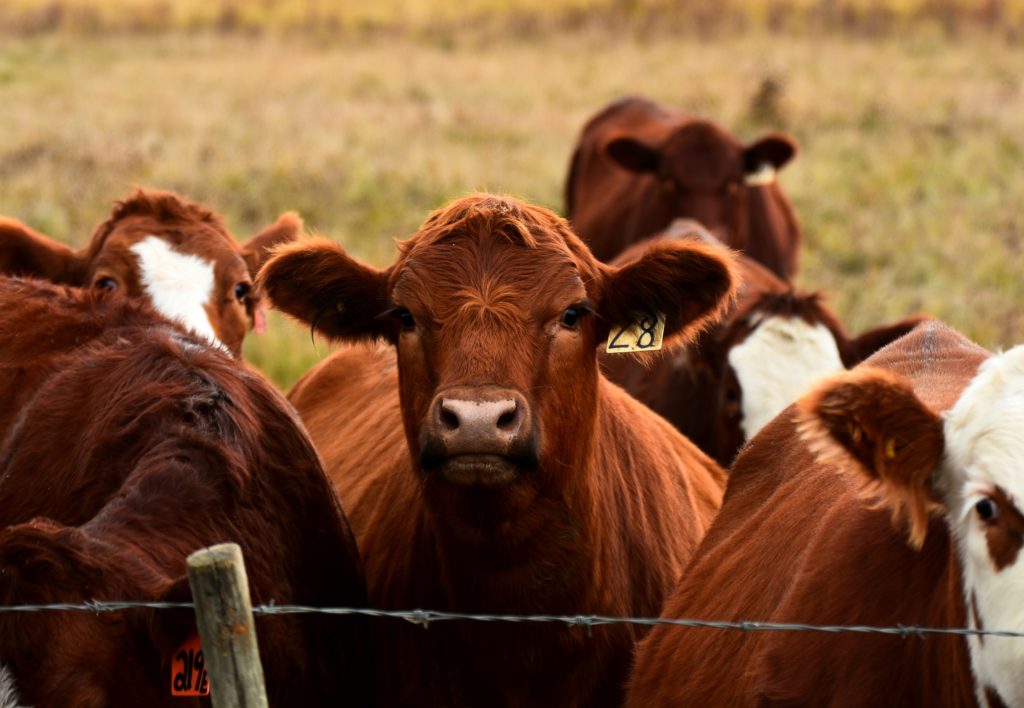Prior Notice of Imported Foods
Prior Notice of Imported Foods
Prior Notice of Imported Foods
Nearly 20% of all imports into the U.S. are food and food products. In 2002 Congress passed the Bioterrorism Act as a part of its ongoing effort to combat terrorism – in this instance, by reducing the ability for international terrorists to carry out terrorist attacks in the U.S. by contaminating imported foods.
The Bioterrorism Act requires that FDA receive prior notification of food, including animal feed that is imported or offered for import into the United States. Advance notice of import shipments allows FDA, with the support of the U.S. Customs and Border Protection (CBP), to target import inspections more effectively and help protect that nation's food supply against terrorist acts and other public health emergencies.
The FDA Food Safety Modernization Act (FSMA) aims to ensure the U.S. food supply is safe by shifting the focus of federal regulators from responding to contamination to preventing it. The FSMA requires that a person submitting Prior Notice of imported food, including food for animals, to report the name of any country to which the article has been refused entry. The new information can help the FDA make better informed decisions in managing the potential risks of imported food into the United States.
In-Depth Coverage: Importing Food Products
- What is FDA Food Safety Modernization Act (FSMA)?
- Prior Notice of Imported Foods
- FDA Food Facility Registration
- Risk-Based Preventive Controls for Human Food
- Risk-Based Preventive Control for Animal Food
- Protect Food against Intentional Adulteration
- What is Foreign Supplier Verification Program (FSVP)?
- What is FSMA Produce Safety Rule?
Food imported or offered for import into the U.S. require Prior Notice
If the article that is shipped to the U.S. is food within the meaning of the law, then Prior Notice generally is required, even if the item is intended for further processing, is not intended for consumption in the U.S., or is not intended for commercial distribution.
Thus, Prior Notice is required for all food for humans and other animals that is imported or offered for import into the U.S. for use, storage, or distribution in the U.S., including food for gifts and trade and quality assurance/quality control samples, food for transshipment through the U.S. to another country, food for future export, and food for use in a U.S. Foreign Trade Zone.
Please note that:
- Every entry item that has a separate FDA product code requires a separate Prior Notice.
- Every entry item from separate facilities requires a separate Prior Notice.
- Every entry item for separate consignees on a consolidated entry requires a separate Prior Notice.
In-Depth Coverage: Marketing and Advertising Compliance
- Federal Trade Commission (FTC) Advertising Rules
- Made in USA Standard
- FTC Regulation on Environmental Claims
- Adverting and Marketing on the Internet
- Label Claims for Conventional Foods and Dietary Supplements
- Dietary Supplement Advertising: What is FTC's Truth-in-Advertising Law?
- USDA Country of Origin Labeling (COOL)
- FTC Rules & Regulations on Food Advertisement
Exemptions from the Prior Notice Requirements
Prior Notice is not required for:
1. Food for an individual’s personal use (i.e., for consumption by the individual, family, or friends, and not for sale or other distribution) when it is carried by or otherwise accompanies the individual when arriving in the U.S.;
2. Food that was made by an individual in his/her personal residence and sent by that individual as a personal gift (i.e., for non-business reasons) to an individual in the U.S.;
3. Food that is imported then exported without leaving the port of arrival until export;
4. Meat food products, poultry products, and egg products that are subject to the exclusive jurisdiction of the U.S. Department of Agriculture (USDA) at the time of importation; and
5. Food subject to Article 27(3) of the Vienna Convention on Diplomatic Relations (1961) (i.e., shipped as baggage or cargo constituting the diplomatic bag).
Prior Notice of Airline Food
If the aircraft food is consumed on the international flight or discarded and is not entered into the U.S. for use, storage, or distribution, it is outside the scope of the regulation, and Prior Notice is not required. By contrast, Prior Notice is required for in-flight food that is moved to U.S. caterers for use on export flights or on domestic flights.
If the food will not be consumed in the U.S., is Prior Notice required?
Yes. Prior Notice requirements apply even when the food will not be consumed in the U.S. You must submit Prior Notice for food that is for transshipment, further processing and export, or storage and export. In contrast, the requirement to register facilities applies only to food facilities that manufacture/process, pack, or hold food for consumption in the U.S.
In-Depth Coverage: Country of Origin
- Country of Origin of Imported Merchandise
- Customs Ruling: Country of Origin
- Country of Origin: Food Products
- Country of Origin: Chemical and Pharmaceutical Products
- Country of Origin & Country of Manufacture: CBP vs. FDA
- Country of Origin: Substantial Transformation or Country of Assembly Test
- Country of Origin and Free Trade Agreement
- Country of Origin and Section 301
Will imported food being admitted into a Foreign Trade Zone (FTZ) need to have Prior Notice?
Yes. Imported food for admission into a Foreign Trade Zone is subject to the Prior Notice regulation. Prior Notice is required before arrival in the U.S. and is, therefore, required prior to admission into a Foreign Trade Zone. Because Prior Notice must be submitted before arrival and admission into an FTZ, Prior Notice is not required when the food is withdrawn from the FTZ, either as an export or for use within the U.S. However, if the food is withdrawn from the FTZ for consumption entry into the U.S., FDA must be notified and will make the
Is there a De Minimis (minimum) value for merchandise subject to the Bioterrorism Act?
There is no De Minimis value for merchandise subject to BTA, therefore, all shipments regardless of value must meet the Prior Notice requirements of the BTA, unless specifically exempted. Please see the next question for exemption information.
Prior Notice of Chemicals and Food Additives
Are chemicals used to manufacture food additives regarded as food for Prior Notice purposes?
Yes. Chemicals that are used for food or drink or are used for components of any such articles are food and are subject to FDA’s Prior Notice regulations. However, if the chemicals are used for food contact substances or pesticides or components of food contact substances or pesticides, Prior Notice is not required.
What are some examples of food contact substances?
Food packaging materials, empty food packages, ceramic dinnerware, brass drinking vessels, and corn husks to be used as tamale wrappers, are examples of food contact substances.
In-Depth Coverage: Importing Cosmetics
How to Submit Prior Notice
Prior Notice can be provided in one of two ways:
-
CBP modified the Automated Broker Interface of the Automated Commercial Environment (ABI/ACE) to allow Prior Notice to be submitted to the FDA through the existing interface between CBP and FDA.
-
The Prior Notice System Interface (PNSI) is available to individuals or companies who cannot, or choose not to, file through CBP. PNSI submissions are expected to include Prior Notice for shipments through international mail; In-Bond entries or admissions into FTZ by carriers or others who do not need to make a full CBP entry at the time of filing the Prior Notice; filers or brokers who need to file CBP entries at a time the ACE/OASIS interface is not available, and others who simply prefer to use an interactive system.
The number of days before arrival that a Prior Notice can be submitted was revised to state that Prior Notice is to be submitted no more than 15 calendars days before arrival if using PNSI and no more than 30 calendar days before arrival if submitting via ABI/ACE.
Prior Notice of Food and Live Animals
Are live animals ''food'' for prior notice purposes?
Live animals are food for purposes of Prior Notice if the live animal is reasonably likely to be directed to a food use. Note that live food animals are not excluded from the Prior Notice because live food animals do not fall within the exclusive jurisdiction of USDA under the Federal Meat Inspection Act or Poultry Products Inspection Act. If the live animals are imported for a non-food use (i.e., as a pet, for show purposes, racing) and are not reasonably likely to be directed to a food use, then Prior Notice is not required.
Live animals are capable of multiple uses, such as food, pets, research, or letting them stay wild. In these situations, the question is whether it is reasonably likely to be directed to a food use. Cows are almost always directed to a food use eventually, even if that is not the immediate use.
Some small animals (e.g., guinea pigs) that are imported end up as food. When this food use is not intended or reasonably likely at the time of import, such as when they are imported as pets, then Prior Notice would not be required.
Horses are sometimes imported for a food use – slaughter and export as food. However, many are imported for non-food uses, such as shows, racing, and pets. When imported for a non-food use, a horse is not subject to Prior Notice requirements, unless it is reasonably likely to be directed to a food use.
In-Depth Coverage: USDA-Regulated Products
- Importing USDA-Regulated Food Products
- Import Regulation by USDA Agricultural Marketing Service (AMS)
- Food Products – FDA or USDA Regulated
- Country of Origin Labeling
- Importing Animals, Animal Products, and Biologics into the US
- Importing Meat, Poultry, and Egg Products into the US
- Labeling and Marking of Imported Meat, Poultry, and Egg Products
- USDA National Organic Program (NOP)
- Agricultural Safeguards and USDA Licensing
If USDA’s Animal and Plant Health Inspection Service (APHIS) inspects the live animals when they are imported into the U.S., are the live animals “food” for Prior Notice purposes?
Yes. Live food animals that are subject to border inspections by APHIS are also subject to FDA’s Prior Notice requirements. FDA and APHIS may both have jurisdiction over live animals. Note that the requirement for Prior Notice to FDA for live food animals does not alter the role of APHIS in, or any APHIS requirements relating to, inspection of live animals imported into the U.S. With respect to food jointly regulated by USDA (including APHIS) and FDA, only food under the exclusive jurisdiction of USDA at the time of importation is excluded from Prior Notice.
Are game animals “food” for which Prior Notice must be given?
Yes. If the animal is reasonably likely to be directed to a food use, the animal is food for which Prior Notice is required. For example, elk imported to stock a ranch where the elk are hunted and used for food would be food under the Prior Notice definition. By contrast, elk imported for repopulating a national park where hunting the elk is not permitted would not be food for which Prior Notice is required. Note that neither live game animals intended for food nor the food products derived from them are excluded from Prior Notice; neither the live game animals intended for food nor the food products derived from them fall within the exclusive jurisdiction of USDA under the Federal Meat Inspection Act or Poultry Products Inspection Act.
In-Depth Coverage: Importing Medical Device
Prior Notice of Food Seed
Are seeds subject to Prior Notice requirements?
The answer depends on whether the seeds meet the definition of food. FDA considers a seed to be food if it is reasonably likely to be directed to a food use. For example, if the seed is for use in animal feed, the seed is food and Prior Notice is required. Similarly, if the seed is to be used for human food, such as sesame seeds to be used in baking or oilseeds for processing into edible oil, then Prior Notice must be submitted to FDA before the seed is imported or offered for import into the U.S.
If the seed will be used for the production of edible sprouts, such as alfalfa seeds for the production of alfalfa sprouts, then you must provide Prior Notice to FDA before the seeds are imported or offered for import. By contrast, if the seed is only for cultivation (even if it is used to grow a plant that may subsequently be consumed as food), then Prior Notice is not required.
US Customs Territory
Is Prior Notice required for foods that are imported into Puerto Rico?
Yes. FDA regulations define the U.S. to be the 50 states, the District of Columbia, and the Commonwealth of Puerto Rico, but not the U.S. Territories. Therefore, Prior Notice is required for food that comes from outside the U.S. into the Commonwealth of Puerto Rico, but not for food shipped from the Commonwealth of Puerto Rico into the 50 states or the District of Columbia.
Prior Notice is not required for food shipped into a U.S. Territory. However, Prior Notice is required for food coming from a U.S. Territory (e.g., Guam, the U.S. Virgin Islands, and the Northern Mariana Islands) into the 50 states, the District of Columbia or the Commonwealth of Puerto Rico.
Please refer to the FDA Guidance for Industry for more information: Prior Notice of Imported Food Questions and Answers (Edition 3): Guidance for Industry
Quick Link To U.S. Customs & Import Requirements
Customs Clearance and Import Requirements
- Entry of Imported Merchandise
- What is Section 321 Entry?
- What is Automated Commercial Environment (ACE)
- What is an Automated Broker Interface (ABI)?
- Who is Ultimate Consignee?
- What is Non-Resident Importer Program?
- Country of Origin of Imported Merchandise
- What is the Country of Assembly?
- What is the FDA's Country of Manufacture?
- Marking of Country of Origin on U.S. Imports
- What is Customs Bond?
- Reconciliation Prototype and Bond Rider
- Who Needs a Customs Broker?
- What is Customs Ruling Program?
- Classification of Imported Goods
- How is imported merchandise appraised?
- What are Import Quotas?
- What are Trade Remedy Duties?
- Antidumping Duty (AD) and Countervailing Duty (CVD)
- What is Foreign Trade Zone (FTZ)?
- What is Importer Security Filing (ISF)?
- What is Temporary Importation under Bond (TIB)
- What is In-Bond Process?
FDA-Regulated Products and Import Requirements
- What is Food Safety Modernization Act (FSMA)?
- Prior Notice of Imported Foods
- Food Facility Registration
- Risk-Based Preventive Controls for Human Food
- Risk-Based Preventive Control for Animal Food
- Standards for the Growing, Harvesting, Packing, and Holding of Produce for Human Consumption
- What is Foreign Supplier Verification Program (FSVP)?
- Protect Food against Intentional Adulteration
- FDA Regulated Product in Foreign Trade Zone (FTZ)
- Entry Review Process for FDA Regulated Products
- Country of Origin VS Country of Manufacture
- Foods Regulated by FDA or USDA: What is the Difference?
- Label and Labeling Claims for Conventional Food and Dietary Supplements
- What is USDA Country of Origin Labeling (COOL)?
- Import for Export of FDA Regulated Products
- FDA Regulated Products in Personal Baggage or Sending by Mail or Courier
- International Mail Facility (IMF) and FDA Regulation
- Importing Biological Product Regulated by CBER
- Importing Cosmetics and Voluntary Cosmetic Registration Program (VCRP)
- Importing Drugs into the U.S.
- Importing OTC Drugs into the U.S.
- Importing Veterinary Drugs into the U.S.
- Importing Tobacco Products into the U.S.
- Importing Medical Devices into the U.S
- Importing Food Products into he U.S.
- Importing Radiation-Emitting Products into the U.S.
Guidance on customs & logistics solution for traditional and e-commerce importers and exporters
Importer Security Filing (ISF)
An ISF is required when cargo (ocean only) laden on vessel at a foreign port is destined for shipment to the U.S. Under ISF rule, some importing information and details regarding cargo must be transmitted to the CBP at least 24 hours before goods are loaded onto the vessel, or at least 24 hours prior to the departure to the U.S.
Customs Clearance
All goods imported into the U.S. are required to be declared to CBP. Our customs broker will help you stay in compliance with customs laws and regulations and clear your goods quickly and efficiently with our electronic Automated Commercial Environment (ACE) and Automated Broker Interface (ABI) Single Window System.
Freight Forwarding
Looking for a freight forwarding partner? To move your cargo from its current location through customs to its final destination we will partner with you to find the best way for your business. Whatever your transportation, logistics or customs clearance needs, we will do our best to customize a solution for your needs.
Warehousing & Distribution
Our warehouse facility offers great potential for serving as a regional hub with over 145,000 SF storage capacity close to Los Angeles Airport & Los Angeles/Long Beach Sea port. With our extensive experience in freight services, your import/export cargo will be handled quickly and effectively.
Section 321 Entry
Section 321 entry allows importing free of duty and tax for shipments imported by one person on one day having a fair retail value in the country of shipment not more than $800. We provide our resident and non-resident clients with dedicated ACE eManifest solutions for Section 321 entry of all modes of transportation.
Non-resident Importer Program
If you want to sell your products in U.S. marketplaces, but you are a business owner located outside of the U.S. and do not have an entity or presence in the U.S., you need to be established as a Foreign Importer of Record before your products can be imported into the U.S. We can help you.
E-Commerce
The Internet has made it easy to find and purchase items from almost anywhere in the world. Our e-commerce experts will help you find the right solution for your international transportation, customs clearance, and delivery to your final destination. We also provide value-added repackaging, warehousing and distribution services.





















